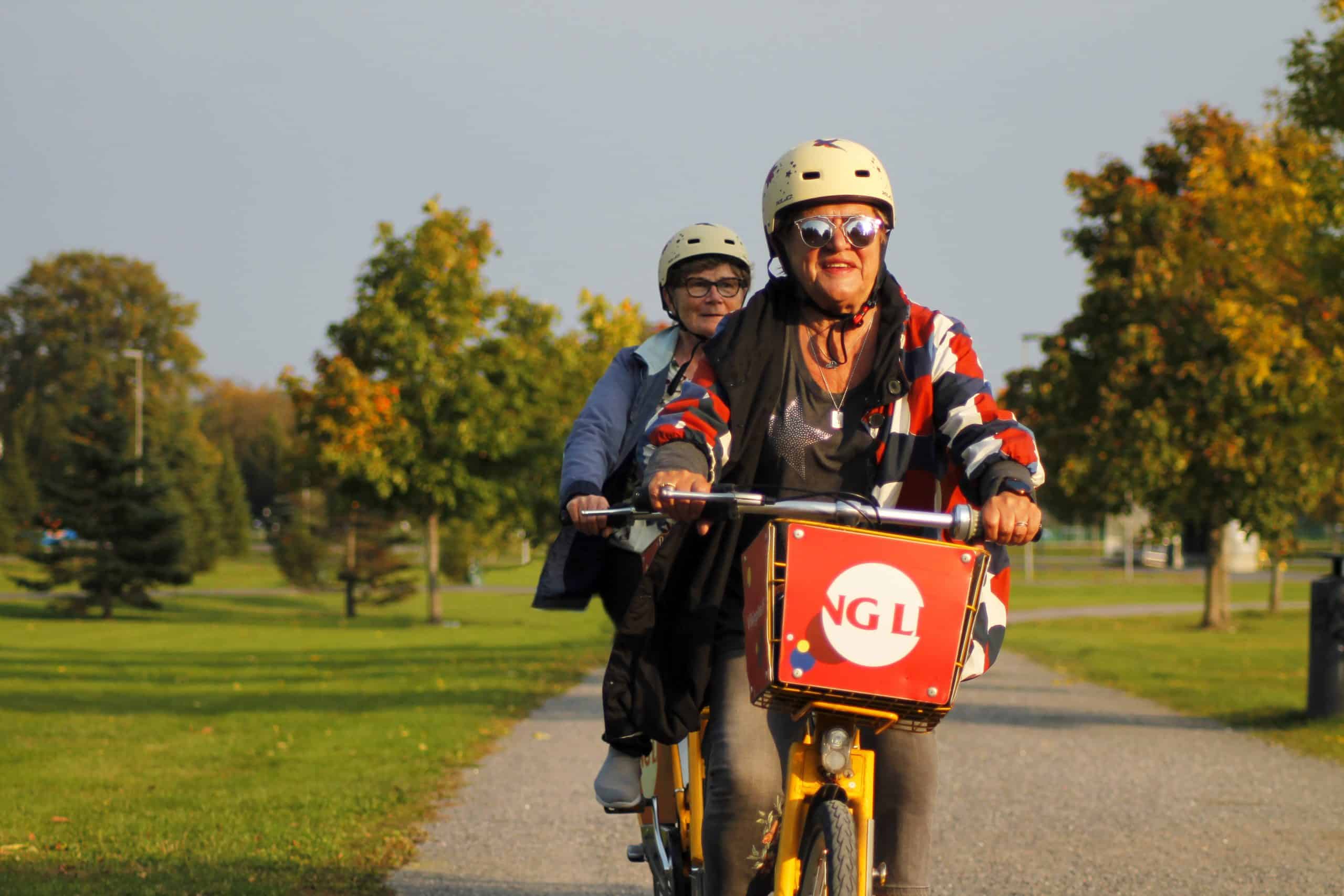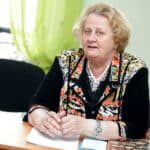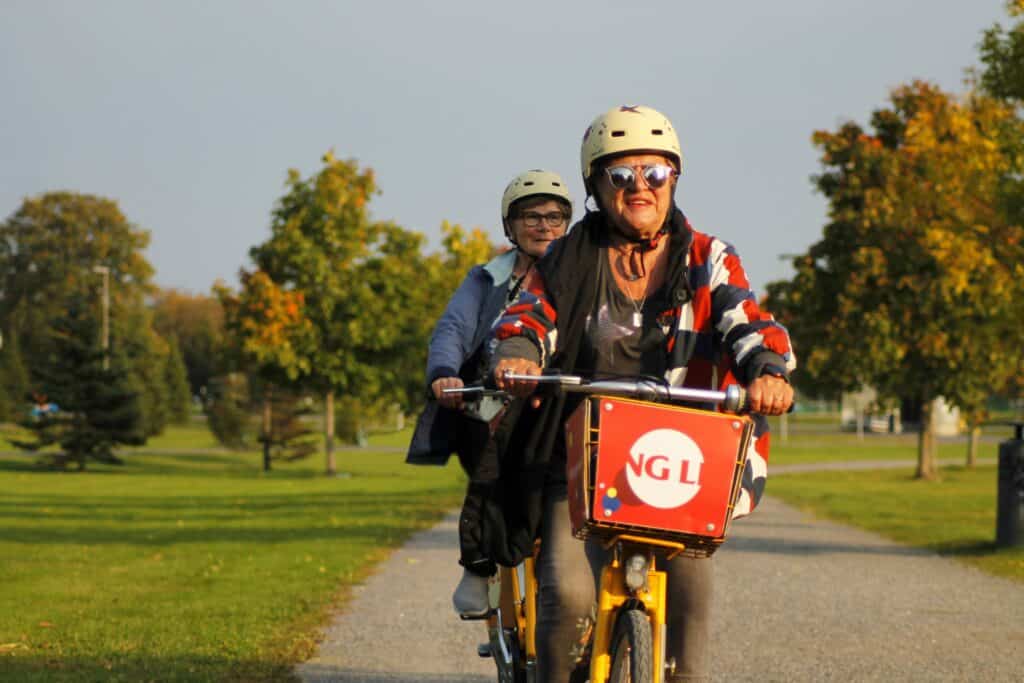
©Heta Laiho
The GreenSAM project focused on the development of age-friendly green mobility solutions based on the opinions and needs of elderly people. This was done thanks to participatory tools used in six cities across the Baltic Sea region.
The key role of senior citizens in urban mobility
GreenSAM (Green Silver Age Mobility) is rooted in the challenge that senior citizens often remain reluctant towards the green urban mobility solutions that are introduced in many cities in the Baltic Sea Region – such as bike-sharing offers or public transport systems. This challenge becomes even more important in the context of ageing societies throughout Europe.
According to this map developed by Nordregio, in the majority of municipalities across the Baltic Sea region the share of population aged 65 years and over is above 19 percent. The numbers show that even the best environmentally friendly transport solutions cannot unfold their full potential if public authorities and transport operators are unaware of the specific needs of senior citizens.
Therefore, improving the senior citizens’ participation in green urban mobility planning is crucial, but how to do so?
Finding answers through face-to-face interaction
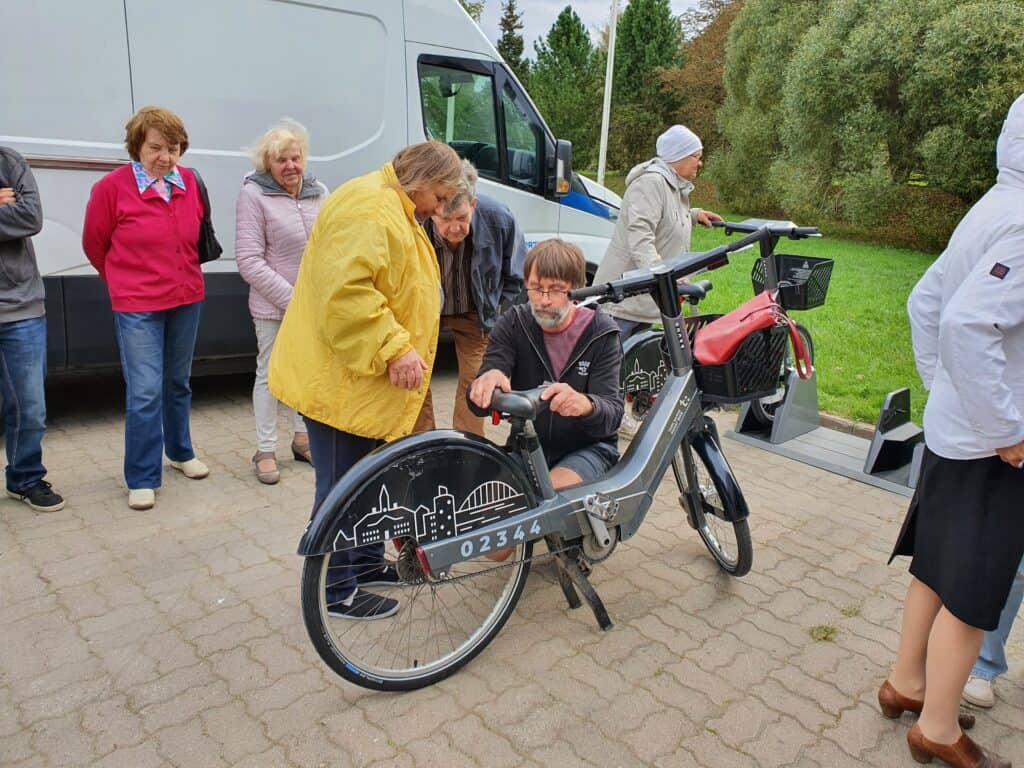
©Institute of Baltic Studies, Andra Asser
The level of physical activity is one of the strongest predictors of healthy ageing, in particular for older age groups. Accordingly, active mobility, such as walking and cycling, is essential for silver agers. In their daily routines, many older people encounter additional barriers to those encountered by younger people.
Thanks to street talks, several workshops, visits to senior centres, conversations in buses or during peer coaching trips the challenges for older people in everyday mobility became comprehensible – i.e. it was explored, whether they were physical, digital or caused by the lack of needs-oriented infrastructure.
The GreenSAM project provided 26 participatory tools which served as a source of know-how for the successful involvement of seniors. In an iterative process, the findings from using the tools have been incorporated into the toolbox, so that a knowledge repository is now available for other planners.
From theory to practice
Once the needs and wishes of the elderly were determined, different approaches were taken to introduce improvements: from raising seniors’ awareness of contemporary green urban mobility options, encouraging the elderly to use bike-sharing systems, co-designing age-friendly intermodal transfer hubs, to mentoring silver agers in the use of digital services in public transport.
Each individual journey of the projects in Hamburg, Gdansk, Aarhus, Turku, Tartu, and Riga is explained in a short video that sums up their path to age-friendly green mobility solutions. How to plan mobility in a participative and age-friendly way is also demonstrated in the online learning module developed in the project.
©Riga Active Seniors Alliance “RASA”
“On behalf of the seniors’ association “RASA” I would like to extend our sincere gratitude to the Riga City Municipality for the involvement of our seniors in urban mobility planning. Moreover, in the digital era, we especially appreciated the opportunity to improve continuously our digital skills through on-site and online training events organized within the GreenSAM project, as these skills enabled us to collaborate with municipal urban planners even during a pandemic and contributed to joint development of a palette of urban mobility solutions. Such transport infrastructure improvements considerably improve the quality of life of senior agers and make us feel fit in the urban environment.”
Terezija Mackare, Member of the Board Riga Active Seniors Alliance “RASA”, Latvia
All experiences and insights gained in the pilot cities have been captured in guidelines, inspirational catalogues, and information material. These have been shared with planners and municipalities to ensure that the knowledge gained from the participation processes is put into practice.
Age-friendly mobility is friendly for all
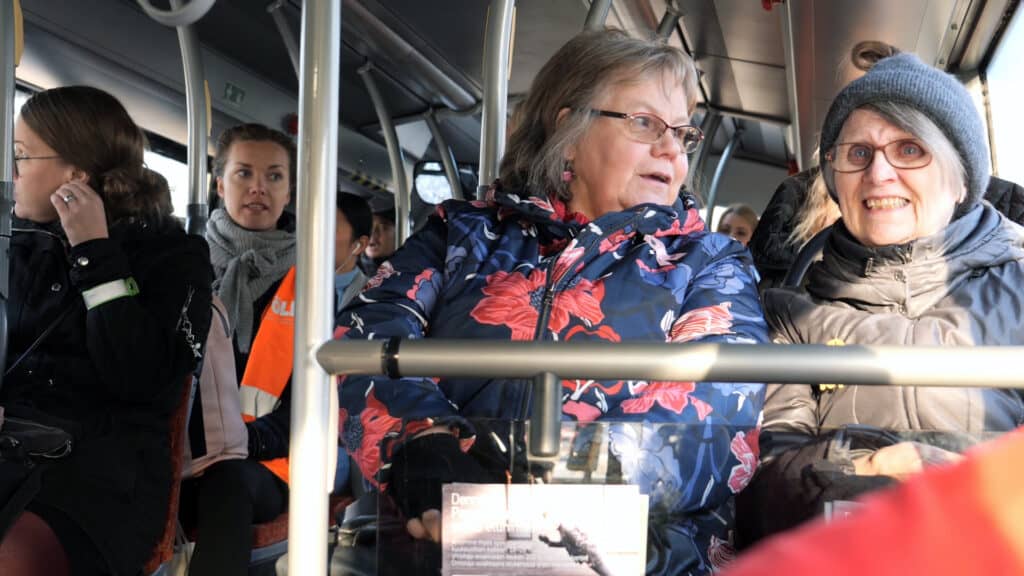
©Heta Laiho
The implemented model solutions are already showing their positive effects. In Tartu for example, the share of registered bike-sharing users and public transport users in the silver age has doubled over the course of the project. Here, the info-posts at bike-sharing stations have been replaced with new ones that are more age-friendly thanks to useful symbols and increased font size. The Estonian project partners also went on a “tour” around Tartu to present the bikes in senior day centres and introduce the new “Encouragement and Involvement Package” particularly made for seniors.
A key insight for all pilot cities was that one should not rely only on creating instructional materials and disseminating them. Practical training and personal instructions are especially important for the generation 60+.
The personal exchange was also one of the main pillars in the mentoring model realised in Turku. Here, senior citizens helped each other to travel in public transport while young people showed the seniors how to use the city’s bicycles. The mentoring approach has been so well received by the seniors that the local Transport Authority Föli will maintain it and keep a peer support group active beyond the project. This kind of institutionalisation of solutions developed in Interreg projects is a great example of the long-term contribution to the sustainable development of the Baltic Sea Region.
©Pasi Leino
“We want to keep the mentoring going because both the mentors and the mentees found it rewarding. Peer support is especially suitable for seniors as they are not often familiar with the digital services that we offer. A friend of the same age can even inspire one to use applications! Föli mentors also became a group from which we can easily ask opinions whenever we need a better understanding of the needs of the seniors.”
Sirpa Korte, Public Transport Director – Turku Region Public Transport Föli, Finland
Learning from each other across borders and generations
Not only the cross-national cooperation was profitable for the project, but also the mix of different institutions with different expertise and practical knowledge – from university to energy agency and city administration.
“The exchange with institutions and experts from other countries was very inspiring for us and opened up new perspectives. We felt really encouraged in our own efforts to work on this topic when we realised its great importance throughout Europe. It is actually very motivating to develop ideas and solutions that do not only have an impact in our own city but also in other places in the world.”
Silke Edelhoff,Borough of Eimsbuettel, lead partner GreenSAM, Free and Hanseatic City of Hamburg
Article written by Amke Oltmanns, Project manager at Zentrum für Energie, Bauen, Architektur und Umwelt GmbH.



